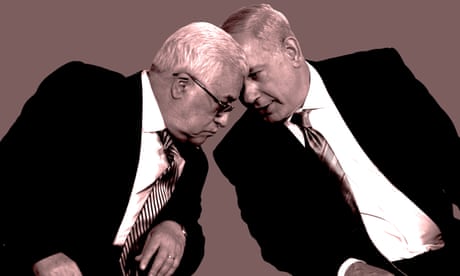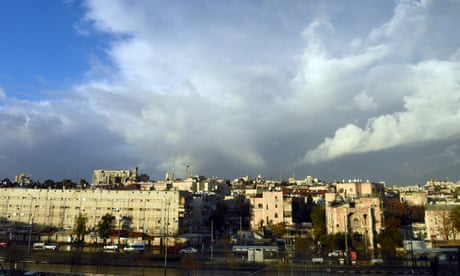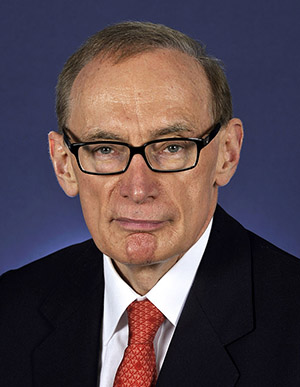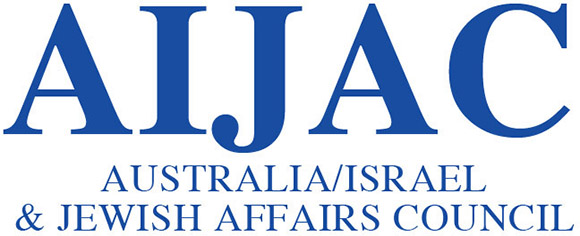in the public interest. The issue here from my perspective is sovereignty and self determination. For me 11/11 is about Australian democracy not the first World War. Although there is a link.
http://www.changingthetimes.net/essays/dismissal.htm The Dismissal
The Dismissal: Why
Gough Whitlam Couldn’t
Simply Say No
A companion paper to Remember, Remember,
The Eleventh of November, As A Time Of Blood And Death.
by David Atwell
I am quite sure by the time some even finish the end of this paragraph, they may think that I am some crazy left-wing Australian unworthy of breathing their oxygen. Yet, considering some 31 years have passed since the greatest political crisis of Australian history, and having done much academic study since then, I do believe that “It’s Time” to begin, not only a Constitutional analysis of those events back in November 1975, but also ask the fundamental question why the dismissed Australian Prime Minister, who was central to this drama, one Gough Whitlam, simply did not tell the Governor-General, Sir John Kerr, to basically fornicate off.
For those of you who may not be aware of this infamous act in Australia history, I will spend some time narrating it here. On 11 November 1975, Remembrance Day in Australia took on a whole new meaning. Instead of remembering the ending of the First World War in 1918, Australians had a new thing to remember: the sacking of a democratically elected government, lead by Gough Whitlam, by the Governor-General Sir John Kerr. This act had come about for several reasons, which I will now outline.
The obvious reason for Whitlam’s dismissal, now readily known as simply The Dismissal, was due to the fact that the Opposition in Australia, the Liberal Party and their coalition partners the Country Party, used their numbers in the Senate to defer the Supply Bill. This Supply Bill was the all important annual Budget, which ensured that the government of the day could govern the country, as it paid for everything more or less. Without it the country would soon shut-down as the Federal government would have no money. As a consequence of this, Kerr argued he was given no choice other than dismiss the current government and ensure new general elections. Whether he had to power to do so, without such advice from the Prime Minister of the time, is highly questionable and we will look at this a little later.
There are other reasons for The Dismissal, although it must be stressed that they are of the conspiracy type and little hard evidence exists to prove them. Having said that as the saying goes truth is stranger than fiction, and considering these theories have persisted for over 30 years, combined with the fact that they have become Dismissal folklore, they should be mentioned even if not necessarily accepted. What they often do, however, is orbit Fraser’s desire to become Prime Minister through any means available. Hence if Kerr gains much of the blame, for The Dismissal, Fraser too should accept much of it as well, because of his political expediency in order to become Prime Minister, regardless of the Constitution, and the damage that it received thanks to his political games.
All of the leading conspiracy theories involve, thus, Fraser on the one hand and the American Central Intelligence Agency on the other. Depending upon which exact theory we follow, they always seem to depend upon how much the CIA was actually involved with The Dismissal itself. Mind you it must be noted that it was not as if the Whitlam Government was not involved with the CIA themselves on various matters, nor can it be denied that the Coalition Parties had not had dealings with the CIA either. What a number of the conspiracy supporters point out, though, are three undeniable events which took place leading up to The Dismissal: all involving the CIA.
The first event took place during the cut and thrust of Parliamentary debate between the Whitlam government and the Opposition. Out of nowhere, or so it seemed, the government accused the leader of the Country Party of sharing a house in Canberra with a couple of CIA employees. This was somewhat denied at first, but eventually Doug Anthony, leader of the Country Party, finally admitted to this whilst claiming that it did not prove a thing.
The second instance was far more substantive albeit somewhat connected with the first. When the Whitlam government found itself in trouble over the Loans Affair (which we will look at a bit later) the government launched an attack against the CIA. No one knows, to this day, why Whitlam begun this action, but essentially he demanded from them a list of every employee, agent or otherwise, who was in Australia during the period in question. By treaty, such information was supposed to have been passed on to the Australian government, regardless of party, as a matter of course anyway, but for some reason Whitlam demanded that it all be done in public and the list was to be tabled in Parliament. This list was supposed to be handed to Whitlam on or around 11 November 1975. It never was.
And finally, connected with the CIA agent list business, there was a back channel communiqué made by the CIA to the Australian Secret Intelligence Agency (ASIS) office at the Australian embassy in Washington DC. In no short terms it asked ASIS whether the security arrangements between the two countries had altered and in what direction was Whitlam taking Australia politically. Although it was probably an honest attempt at trying to get an understanding as to what Whitlam was doing, it nevertheless gained the attention of the Head of ASIS who immediately informed Whitlam. Within 24 hours Whitlam had been sacked.
But, regardless of whether or not the conspiracy theorists might be right, at least the legitimate reason why Whitlam was dismissed was the Loans Affairs. These loans all involved one shady character by the name of Khemlani. The Whitlam government wanted to raise a $au4 billion loan to develop the north-west gas and oil fields just in the immediate aftermath of the Yom Kippur War whence OPEC, lead by Saudi Arabia, placed an oil embargo upon the West for its support of Israel during that conflict. The irony is today, the north-west gas and oil fields are one of Australia’s great resources. Whitlam’s mistake, however, was his willingness to use Arab money, as the loan source, instead of the traditional manner of having the loan raised in London or New York.
In doing so, when news got out about the loan, was bad enough, yet the government was able to whether the storm in June-July of 1975. However, it then sealed its fate when, even though Whitlam announced to Parliament that the loans were not going to be sought and that authorisation had be withdrawn to further loan negotiations, two of his government Ministers, one REX Connor and Jim Cairns, decided to continue seeking these loans secretly and thus in total contradiction to what the Prime Minister had told Parliament. Inevitably word got out, from Khemlani himself as a matter of fact, that he had continued to negotiate the loans well after Whitlam had said otherwise. And luckily, or possibly deliberately, for the Opposition, such news arrived just as debate over the Budget had commenced. About three weeks later The Dismissal took place.
Now our first question to raise, in order to explore why Whitlam simply did not tell Kerr to take a hike, is the Constitutional ins-and-outs from which Whitlam was coming from. Essentially Whitlam believed in the Westminster system’s doctrine of Ministerial Advice. Basically it means that the Monarch or their representative – in other words the Governor-General in this case – can only act upon the advice given to them by the Prime Minister or one of the other Ministers of the Crown – in other words Cabinet Ministers. The Monarch may reject this advice, however, but they may not initiate independent action themselves nor may they gain advice from any other source other than those already mentioned above.
In Australia, prior to The Dismissal, it was generally believed that this doctrine of Ministerial Advice had been written into the Constitution under the following Sections:
62. There shall be a Federal Executive Council to advise the Governor-General in the government of the Commonwealth, and the members of the Council shall be chosen and summoned by the Governor-General and sworn as Executive Councillors, and shall hold office during his pleasure.
63. The provisions of this Constitution referring to the Governor-General in Council shall be construed as referring to the Governor-General acting with the advice of the Federal Executive Council.
64. The Governor-General may appoint officers to administer such departments of State of the Commonwealth as the Governor-General in Council may establish.
Such officers shall hold office during the pleasure of the Governor-General. They shall be members of the Federal Executive Council, and shall be the Queen’s Ministers of State for the Commonwealth.
After the first general election no Minister of State shall hold office for a longer period than three months unless he is or becomes a senator or a member of the House of Representatives.
Do note that the term Federal Executive Council usually applies to the senior members of Cabinet: in other words the Prime Minister, the Deputy PM, and one or two other Ministers of State.
The supporters of Kerr, however, always point towards Section 2 (as well as Section 64 Para i & ii above) in justifying his actions insofar as the Governor-General has the right to hire and fire:
2. A Governor-General appointed by the Queen shall be Her Majesty’s representative in the Commonwealth, and shall have and may exercise in the Commonwealth during the Queen’s pleasure, but subject to this Constitution, such powers and functions of the Queen as Her Majesty may be pleased to assign to him.
But this Section cannot be taken alone, nor Section 64 for that matter, when dealing with such issues, because Section 67 very clearly defines the situation:
67. Until the Parliament otherwise provides, the appointment and removal of all other officers of the Executive Government of the Commonwealth shall be vested in the Governor-General in Council, unless the appointment is delegated by the Governor-General in Council or by a law of the Commonwealth to some other authority.
In other words the Constitution states that the Governor-General can appoint and dismiss, but can only do such things when the Governor-General is advised to do so by members of the Federal Executive Council. It goes without saying that this was never the case in November 1975.
So essentially Whitlam was taken by surprise on that fateful morning as he never expected whatsoever to be ambushed by his dismissal.
And now finally we get to explore the alternate history part of this essay. It is well known that it took some 2 hours before Whitlam finally made a public appearance with some eloquence, tempered with great passion, in giving his famous speech on the steps of Parliament, proclaiming in part:
Well may we say ‘God Save the Queen’, because nothing will save the Governor-General.
These are some fighting words, but Whitlam never really made a fight of it: not at least in the more traditional sense of leading a revolution against the Governor-General (and the Monarch) akin to what our American cousins did some 200 years prior to 1975. In many respects, considering the great anger of the crowd in Canberra that day, it would not have been hard for Whitlam to have done that. Certainly the large student population would have likely joined such a revolution as would have the large trade union population. And, as events would unfold throughout the rest of November and early December, such a revolution could have taken place judging by the tens of thousands of protesters who turned out at the various Labor Party political rallies running up to the election in December 1975.
The answer to this question probably lies in two parts. And it was all because of Whitlam in many respects. At this point in time we should probably look at the man himself in question albeit briefly. To begin with he was a World War II veteran. In fact he served in the Royal Australian Air Force. Furthermore, he was also a lawyer for many years before being elected to Federal Parliament. As a consequence, he had served in Parliament for many years. He was also, what was called back then, a social democrat – not a revolutionary socialist. And finally, after Australia’s involvement in the Vietnam War, and the wholehearted unpopularity which it had gained by early 1972, wherein millions of Australians marched everywhere against that war, all convinced Whitlam that war achieved nothing but blood and death.
So here we are, in November 1975, with Australia on the very edge of civil war. Regardless of the moment, Whitlam would have known for certain that, even though he may have had much support in various parts of the nation, a significant number of Australians would be against him regardless of what he decided to announce on the footsteps of Parliament. As such, and even though Whitlam probably did not know it at the time, the armed forces had been alerted to expect trouble by the Governor-General. Although the reservists had not been called up, the regular forces were mobilising nevertheless with the possible task of taking on rioting students and trade unionists. This could have meant that Australia would face a war, in the end, not too dissimilar to Vietnam, which was clearly an experience anyone, let alone Whitlam, would want to avoid. Furthermore, Whitlam knew all too well the fate of the socialist Chilean President Allende from only a few years before where his death, at the hands of the military, meant a dreadful future for Chile under the likes of Pinochet. Taking account of all this, then, as well as Whitlam’s character, it is not surprising then that he declined to call for a revolution.
Although the above few paragraphs may appear to make Whitlam out to be pious, in truth he was anything but. He was a politician first and foremost. Whilst Whitlam may have feared destruction and much bloodshed, had he called for a revolution, we must remember that he was also a lawyer who loved the Constitution. He believed that the Constitution was on his side. But he also believed that he was just given a huge political windfall. Due to lots of different reasons, the Labor Party had become very unpopular with the voters. The oil blockade of OPEC ensured a global recession had taken place. Not only was the price of oil high, but food and everything else had become much more expensive. Similarly, unemployment began to rise and numerous companies had gone to the wall. Then there was the Loans Affair business. All this made for one very unhappy Australian electorate.
Then came The Dismissal. This changed the entire political scene, not just overnight, but within a matter of minutes. All of a sudden Whitlam was seen in a new light by many Australians insofar as it was seen that big business, the Liberal Party, not to mention the nation’s elites, had broken the rules in order to kick Whitlam out of office by any means necessary. To put it simply, in terms most Australians understood, the so called “neutral umpire”, that being the Governor-General, had conspired with the “enemy” which led him to deliberately cheat and break the rules. Whitlam, in the few hours he had from when he was dismissed to when he gave his impromptu speech on the steps of Parliament, had probably thought about this and believed that, in just under a month’s time, he would romp it in at the elections and given a new lease of life. He more than likely believed that, if he played by the rules, whilst the others did not, Australians would side with him, if for nothing else, he played the game fair.
What Whitlam did not calculate on, however, was the political campaign waged by Fraser. Fraser knew he was tarnished by The Dismissal, regardless of how innocent he tried to portray himself, and hence basically ignored The Dismissal in his election campaign. Consequently, he concentrated on petrol prices, he concentrated on Australia being in an economic recession, he concentrated on bankruptcies, and he concentrated on unemployment. At first, Australians hardly listened to what Fraser had to say, as they were too wound up in the emotional climatic events of The Dismissal itself. But as the election approached, Australian’s anger over The Dismissal lessoned and they looked into their ever shrinking wallets. It is probably fair to say that the election results in December 1975 were of mixed emotions. In the end, however, Australia may have wanted to vote for Whitlam, but their reduced hip pockets made them vote for Fraser instead.
BIBLIOGRAPHY
Primary Sources
Books
Constitution of the Commonwealth of Australia, Canberra: Commonwealth of Australia, 1987.
Congalton, A. A., Status and Prestige in Australia, Melbourne: F. W. Cheshire Publishing, 1969.
Fraser, M., Malcolm Fraser on Australia, (eds) White, D. M. and Kemp, D. A. Melbourne: Hill of Content Publishing, 1986.
Kerr, Sir John, Matters for Judgement, Melbourne, Macmillian Press, 1979.
Mackerras, M., Elections 1975, Sydney: Angus and Robertson Publishers, 1975.
Quick, J. and Garran, R. The Annotated Constitution of the Australian Commonwealth, Sydney: Legal Books, 1995.
Whitlam, E. G., The Truth of the Matter, Ringwood: Penguin Books Australia, 1979.
Whitlam, E. G., The Whitlam Government 1972-1975, Ringwood: Penguin Books Australia, 1985.
Secondary Sources
Journals
Archer, J. and Maddox, G., “The Concept of Politics in Australia“, The Australasian Political Studies Association Journal, Volume XI, May, (1976), PP7-12.
Forward, R., “Editorial opinion and the Whitlam government“, The Australasian Political Studies Association Journal, Volume XI, May, (1976), PP136-141.
Holmes, J., “Swingers and stayers, 1974-75“, The Australasian Political Studies Association Journal, Volume XI, May, (1976), PP47-53.
Staveley, R. W. 1976, “The conventions of the constitution: Kerr’s folly”, The Australasian Political Studies Association Journal, Volume XI, May, (1976), PP16-19.
Books
Ayres, P., Malcolm Fraser, Richmond: William Heinemann, 1987.
Beed, T., “Opinion Polling and the Elections”, in H. R. Penniman, (ed.), Australia at the Polls, Washington: American Institute for Public Policy Research, 1977, PP211-256
Bolton, G., The Oxford History of Australia, The
Middle Way 1942-1988, Melbourne: Oxford University Press, 1993.
Browning, H. O., 1975 Crisis, Sydney: Hale and Iremonger, 1985.
Chomsky, N. Necessary Illusions, Boston: South End Press, 1989.
Clark, M., A Short History of Australia, fourth edition, Ringwood: Penguin Books, 1995.
Connell, R. W., Ruling Class, Ruling Culture, Melbourne: Cambridge University Press, 1977.
Cooray, L. J. M., Conventions, The Australian Constitution, and the Future, Sydney: Legal Books Pty. Ltd. 1979.
Freudenberg, G., A Certain Grandeur, Ringwood: Penguin Books, 1977.
Goodall, P., High Culture, Popular Culture, St Leonards: Allen and Unwin, 1995.
Goot, M., Constructing Public Opinion, Sydney: Ethnic Affairs Commission, 1984.
Herman, E. S. and Chomsky, N., Manufacturing Consent, New York: Pantheon Books, 1988.
Horne, D., Winner Take All?, Ringwood: Penguin Australia, 1981.
Horne, D., Death of The Lucky Country, Ringwood: Penguin Australia, 1976.
Howard, C., The Constitution, Power and, Politics, Melbourne: The Dominion Press, 1980.
Kelly, P., November 1975, St Leonards: Allen and Unwin, 1995.
Kelly, P., The Dismissal, Sydney: Angus and Robertson Publishers, 1983.
Kelly, P., The Unmaking Of Gough, Sydney: Angus and Robertson Publishers, 1976.
Lane, P. H., An Introduction to the Australian Constitution, second edition, Sydney: The Law Book Company, 1977.
Lloyd, C. J., “The Media and the Elections”, in H. R. Penniman, (ed.), Australia at the Polls, Washington: American Institute for Public Policy Research, 1977, PP171-210.
Lloyd, C. J. and Clark, A., Kerr’s King Hit, Stanmore: Cassell Australia, 1976.
McMullin, R., The Light on the Hill, Melbourne: Oxford University Press, 1991.
Marshall, I. And Kingbury, D. Media Realities, South Melbourne: Longman, 1996.
Molony, J., The Penguin History of Australia, Ringwood: Penguin Books Australia, 1987.
Reid, G. S., “Conventions and the Constitution”, in A. Parkin, J. Summers, and D. Woodward, (eds.), Government, Politics and Power in Australia, Melbourne: Longman Cheshire Pty. Ltd. 1980, PP67-69.
Sawer, G. 1980, “Laws and Convenstions”, in A. Parkin, J. Summers, and D. Woodward, (eds.), Government, Politics and Power in Australia, Melbourne: Longman Cheshire Pty. Ltd. 1980, PP62-66.
Sawer, G., Federation Under Strain, Melbourne: Melbourne University Press, 1977.
Sexton, M., Illusions Of Power, Sydney: George Allen and Unwin, 1979.
Smith, R, , “The News Media”, in R. Smith, and L. Watson, (eds.) Politics in Australia, North Sydney: Allen and Unwin, 1989, PP254-269.
Turner, G. “Media Texts and Messages”, in S. Cunningham, and G. Turner, (eds.) The Media in Australia, second edition, St Leonards: Allen and Unwin, 1997, PP291-348.
Ward, R., The History of Australia: The Twentieth Century 1901-1975, London: Heinemman Educational Books, 1978.
Weller, P. and Smith, R. F. I. 1977, “The Rise and Fall of Whitlam Labor: The Political Context of the 1975 Elections” in H. R. Penniman, (ed.), Australia at the Polls, Washington: American Institute for Public Policy Research, 1977, PP49-76.
West, F., “Constitutional Crisis 1975 – An Historian’s View”, in A. Parkin, J. Summers, and D. Woodward, (eds.), Government, Politics and Power in Australia, Melbourne: Longman Cheshire Pty. Ltd. 1980, PP70-80.







